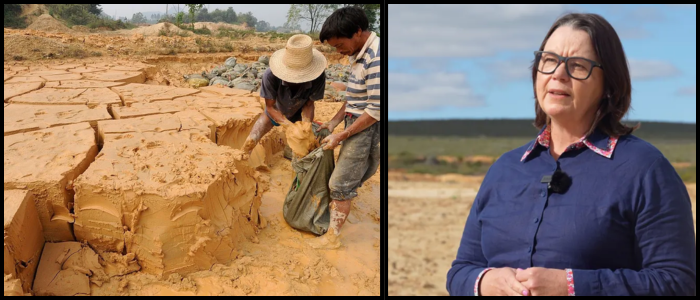The family-run company Dr Bronners, which has 323 employees, publicly criticized the program, charging that it “enables greenwashing and purpose washing by multinationals.”
The company had challenged the certification of Nespresso, the part of the food giant Nestlé that was accepted into the scheme in 2022. This followed an accusation in 2020 that some of Nespresso’s Guatemalan coffee suppliers were using child labor — a claim the brand refuted, saying it had “zero tolerance” for such practices and would take swift action.
“It is unacceptable to us to be grouped with the titans of consumer goods many of whom have even worse records of ecological and labor abuses,” said Dr Bronners in a statement. “The validity of the certification has been undermined.”
Nespresso said in a statement that its accreditation was a recognition of years of sustainability work and that it had been granted by a comprehensive B Impact Assessment of its operations and supply chains.
New Rules Amid Rising Concerns
B Corp was founded in 2006 and has grown to more than 9,600 companies in 102 countries and 161 industries. Such businesses account for more than 96% of participants, however, with the scheme coming under criticism for being too focused on growth rather than sustainability.
Today, companies can be certified by achieving a score of at least 80 out of 200 points across different environmental and social criteria. But shortcomings in one part can be compensated for by strengths elsewhere. The scoring process will be phased out by 2026.
The new approach will apply minimum standards in seven areas: purpose and governance, fair work, justice and inclusion, human rights, climate action, environmental stewardship, and government affairs. Third-party verification and ongoing improvement will also be necessary.
“This is about raising the bar and increasing transparency,” said Chris Turner, chief executive of B Lab UK, the organization that created B Corp. Even as he rejected that the changes were aimed at large companies, he said.
“We fully recognize that big companies can have more impact potential and thus deserve more scrutiny.
Yet it remains unclear whether the changes will rebuild trust among disillusioned members.
UK pet food business Scrumbles also quit the scheme earlier this year. “The emphasis moved to growing the membership, not deepening the sustainability,” said co-founder Aneisha Soobroyen, who donated their £8,500 recertification fee to Save The Children.
Calls for Deeper Commitment
According to Nancy Landrum, a professor specializing in sustainable business transformation at Munich Business School, B Corps can provide a good place for companies that are just starting to enter the realm of sustainability. “But, like most certification schemes, it doesn’t go far enough,” she added.
Even so, despite concerns, the certification could be because it helps companies attract the conscious consumer. But for companies like Dr Bronner’s, credibility is a greater concern. The company remains open to rejoining B Corp if the network tightens its rules, particularly in regard to multinational supply chains, said CEO David Bronner.
“We believe that our label is strong enough without having the label on it,” he said. In the meantime, the company has rolled out its project dubbed the Purpose Pledge. It’s also purposefully set up to reflect deeper values as well: paying living wages, ensuring ethical supply chains, and establishing accountability to members, said Bronner. So far, 14 companies have signed on.
Whether this will signify a break from the mainstream certification schemes or compel reform from within, one thing is certain: the struggle for sustainability will continue!
Business

B Corp Faces Backlash Over Greenwashing Claims

The B Corp certification, which has celebrated companies with strong social and environmental values, is catching flak. Dr Bronner’s, a California-based natural soap maker, last month brought to an end a decade of participation in the scheme, which it said had now become too relaxed and allowed major multinationals to win certification without needing to adhere to rigorous enough standards.















